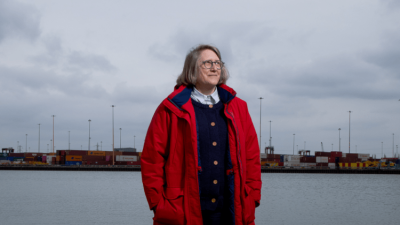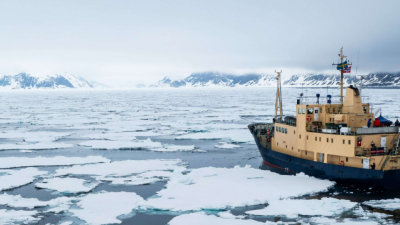
Rewriting Women into Maritime makes London International Shipping Week debut
Rewriting Women into Maritime makes London International Shipping Week debut.
This page is approximately a 3 minute read
This page was published on

UArctic has launched a new research fellowship programme following recent funding from Lloyd’s Register Foundation. The programme is part of a new partnership exploring 'maritime safety: learning from the past to address challenges to the safety of peoples in the Arctic.'
The £500,000 grant will support fellows over two academic years, 2024-2026, offering funding to individuals interested in researching the critical challenges of maritime safety in the Arctic across three interconnected themes. Fellows will benefit from co-ordination and research collaboration facilitated by the UArctic programme management, and potentially collaborate with the UArctic Chairs and relevant Thematic Networks. The programme invites bids for up to £40,000 over the two years.
Background
The maritime Arctic is undergoing profound changes. Climate change is reducing sea ice cover, opening up new sea routes, and affecting the distribution of commercial fisheries, as well as impacting global weather systems. We have seen a steady increase in ship traffic of all kinds across the Arctic; more fishing vessels, merchant ships, research vessels and cruise ships. This presents both opportunities and challenges for Indigenous and local communities, such as communities in Inuit Nunangat or commercial fishing communities in Iceland. It also presents new risks to the environment and to the safety of these communities as well as the people onboard ships.
However, these changes are not only impacting the present, but have also done so in the past. People have explored new Arctic routes for generations and transitioned between different means of powering ships and the infrastructures to support them. We have an opportunity to learn from the past to help us better navigate the challenges of today and to do so in a way that is equitable and inclusive. The new fellowship programme will take this opportunity and do so in a way that builds both connections and capacities for maritime research in the Arctic.
The first call for research highlights three interlinked topics:
Call for proposals
The programme invites applications from researchers and Indigenous knowledge holders employed by UArctic member institutions. UArctic x Lloyd’s Register Foundation Research Fellows will not only receive funding for their work but can also benefit from access to the Foundation’s extensive archive of ship surveys, wreck reports and more.
Proposals will be invited for research that draws upon history to help with the safety challenges of the changing Arctic Ocean. Research Fellows may come from a variety of disciplines including humanities, social sciences and natural sciences.
Proposals must be submitted electronically using the UArctic application portal by 15 June 2024.
For more information on the eligibility criteria and submission of proposals please visit the UArctic website.